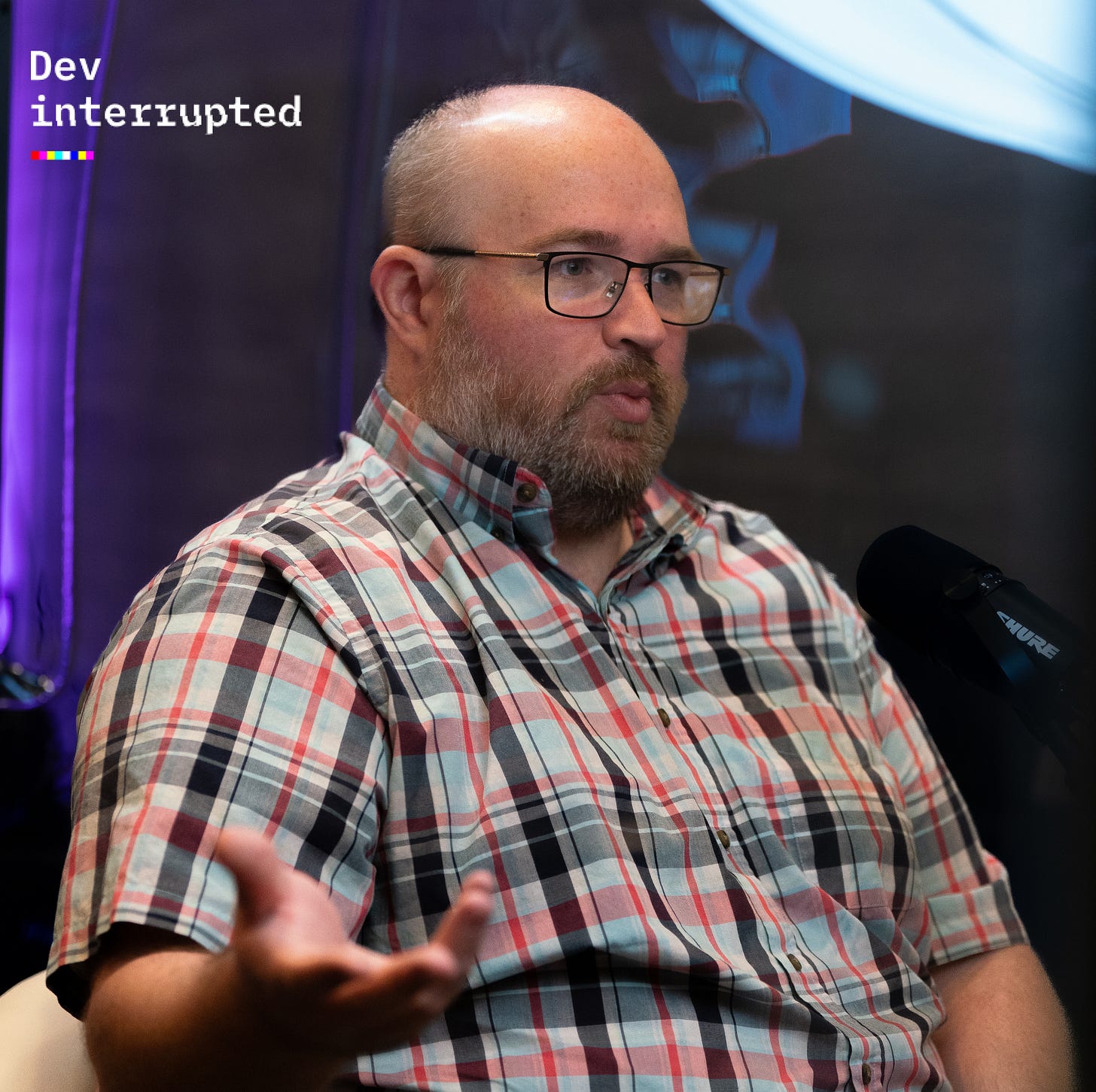The Rise of Cloud Costs, and How to Optimize Them | Plaid’s Mark Robinson
Plus, why do companies keep so many secrets, the planning fallacy and three keys to managing up.
“If you're not careful, cloud computing can lose more money faster than any invention in history” - Mark Robinson, Infrastructure Engineer at Plaid.
This week, guest host Ben Lloyd Pearson sits down with Plaid’s Mark Robinson to learn how he helped Plaid save 25% in costs by optimizing existing resources and eliminating waste in cloud computing.
Mark explains the importance of understanding your cloud bill, identifying areas where you’re overspending, and implementing changes that lead to significant savings. From the basics of tagging resources to the intricacies of optimizing network and storage costs, Mark offers practical tips that can help you uncover countless optimization opportunities.
Tune in to learn about the rewards of improving cloud cost efficiency, the role of organizational buy-in, and the benefits of making cost optimization a company-wide value.
“There's a million little blind alleyways that you're spending on that you don't even realize. There's just so much — someone set it up, it must be right, and you go back and look at it and no, that's just wrong.
Amazon bills you a lot for networking fees. But by default, they send all your S3 traffic out to the internet, and will then bill you for that. But if you flip this one little toggle, it goes internally, and it's such a huge change. It'll save you a fortune if you do a lot of S3.”
Episode Highlights:
0:56 How did cloud computing get so expensive?
2:34 Digging into what your costs actually are
4:55 How can you account for the various services you use?
7:35 Where are organizations going to get the most value out of?
12:26 Cloud costs relation to better code quality
16:08 Blockers in organizations to cost savings
19:32 Getting buy-in from leadership on cutting cloud costs
The Download
The Download is engineering leadership content we’re reading, watching, and attending that we think you might find valuable.
1. Why do companies keep so many secrets
As a manager, how transparent should you be with your team if there are financial problems or unrealistic roadmaps ahead?
recent post argues against the common managerial instinct to withhold information from your teams because transparency leads to better outcomes. Keeping team members informed about financial situations can build trust and engagement, while involving them in roadmap discussions fosters a sense of ownership.Not all information can be shared, but erring on the side of transparency can reduce disappointment and improve decision-making.
2. The planning fallacy
Regardless if you’re a CEO running a company or a college student turning in a paper, you’ve surely misestimated a project’s timeline and experienced the planning fallacy at some point.
Mitigating this cognitive bias means putting some of your optimism aside and weighing obstacles during the planning process. The Decision Lab’s post on the planning fallacy should help you in your next sprint planning meeting so you can avoid scope creep, and give a more realistic deadline.
Read: The Planning Fallacy
The Essential Guide to Software Engineering Intelligence (SEI) Platforms (Sponsor)
Whether Software Engineering Intelligence is a new concept or you’re actively evaluating solutions, LinearB’s new Essential Guide to SEI Platforms is perfect for any engineering organization looking to drive continuous improvement.
SEI Platforms help drive operational excellence and business impact, and LinearB’s three-part guide highlights what SEI has to offer, how to adopt it, and how to determine what exactly you’re looking for in a platform. Download your free copy 👇
3. Three keys to managing up
Building a strong relationship with your manager starts with figuring out how to manage up.
discusses three key lessons for effectively managing up, including:Remove uncertainty and keep your manager regularly updated on progress to build trust.
Align your priorities with your manager's and understand their top concerns. Make sure your work supports their goals / business goals.
Demonstrate a growth mindset by proactively seeking feedback, learning from mistakes, and showing continuous improvement.
4. Educating the Next Gen of Cloud Engineers with Google Cloud
One of our most popular episodes from last season featured Forrest Brazeal, Head of Developer Media at Google Cloud. Forrest joined us to talk about the future demand for cloud engineers, how the industry is failing aspiring devs, and how to train the next generation of cloud engineers.








Thank you so much for the mention on the managing up article, Dev Interrupted team!